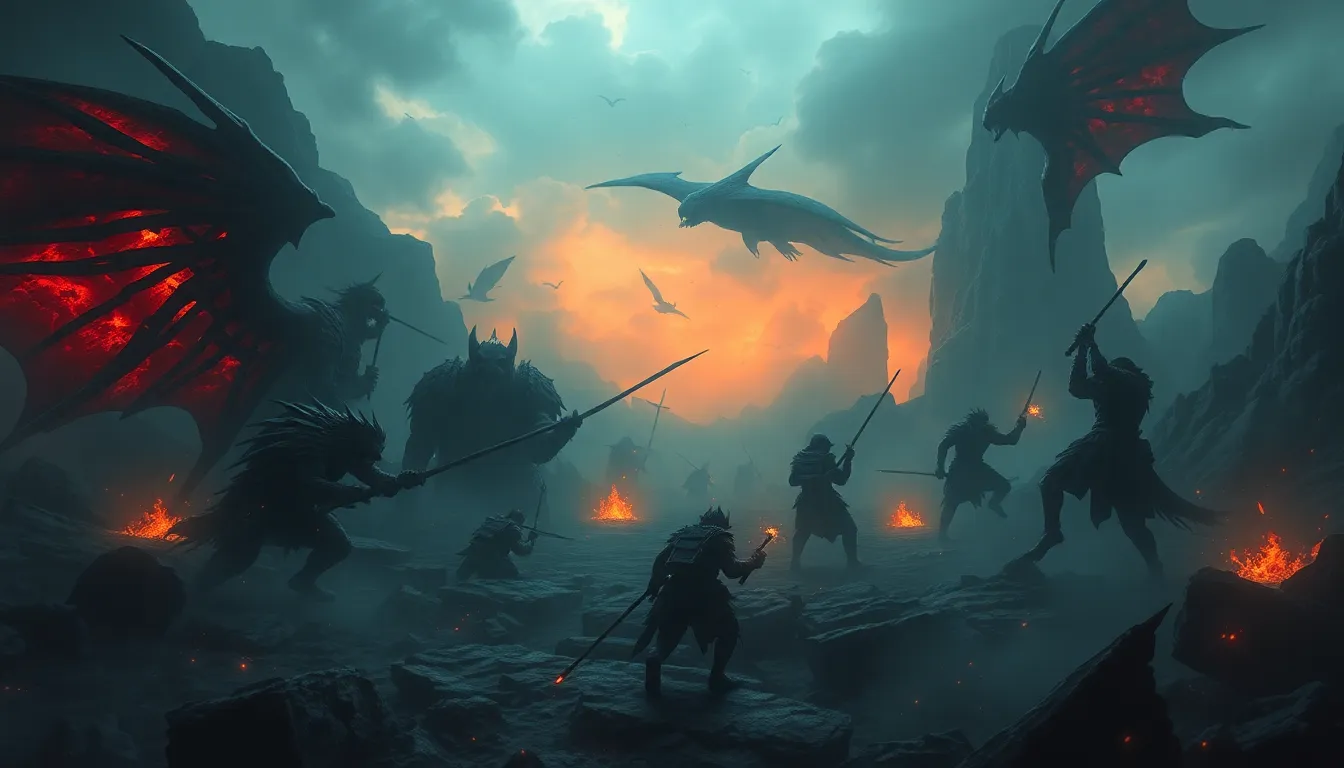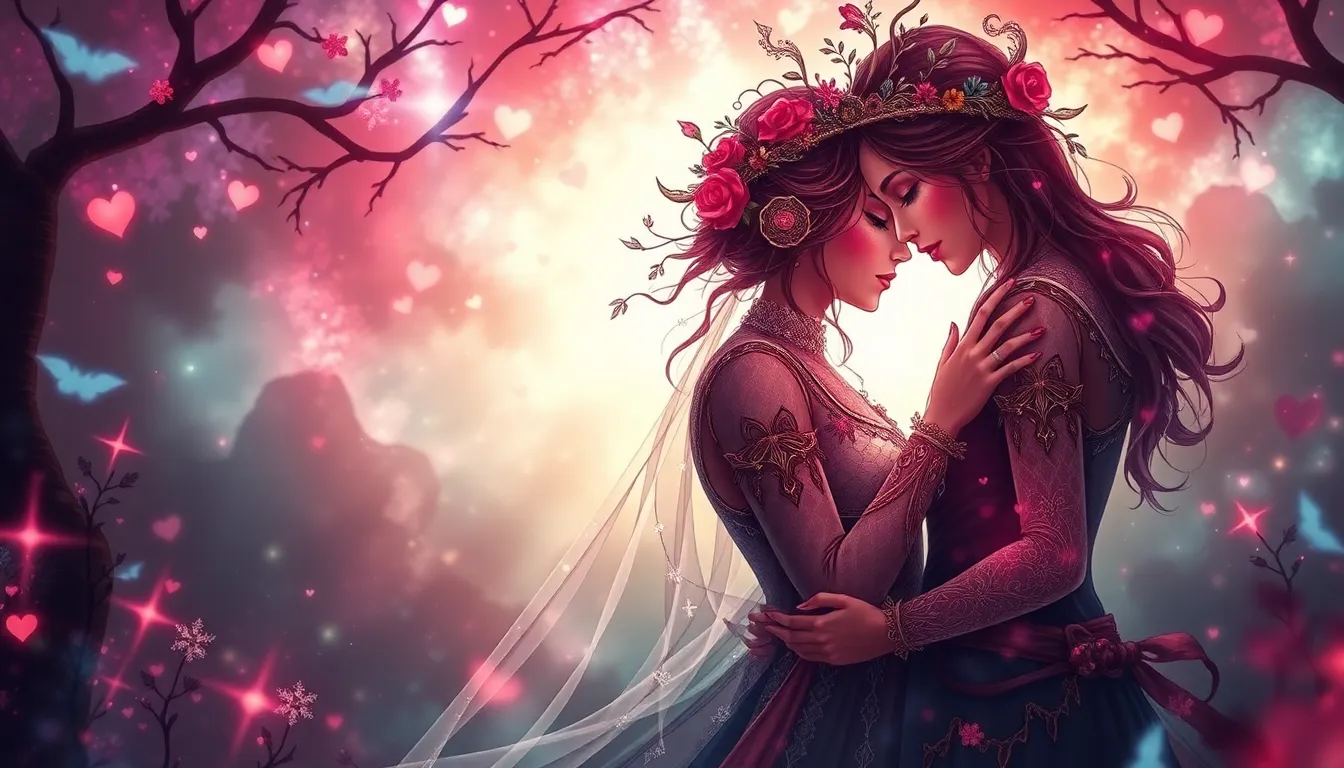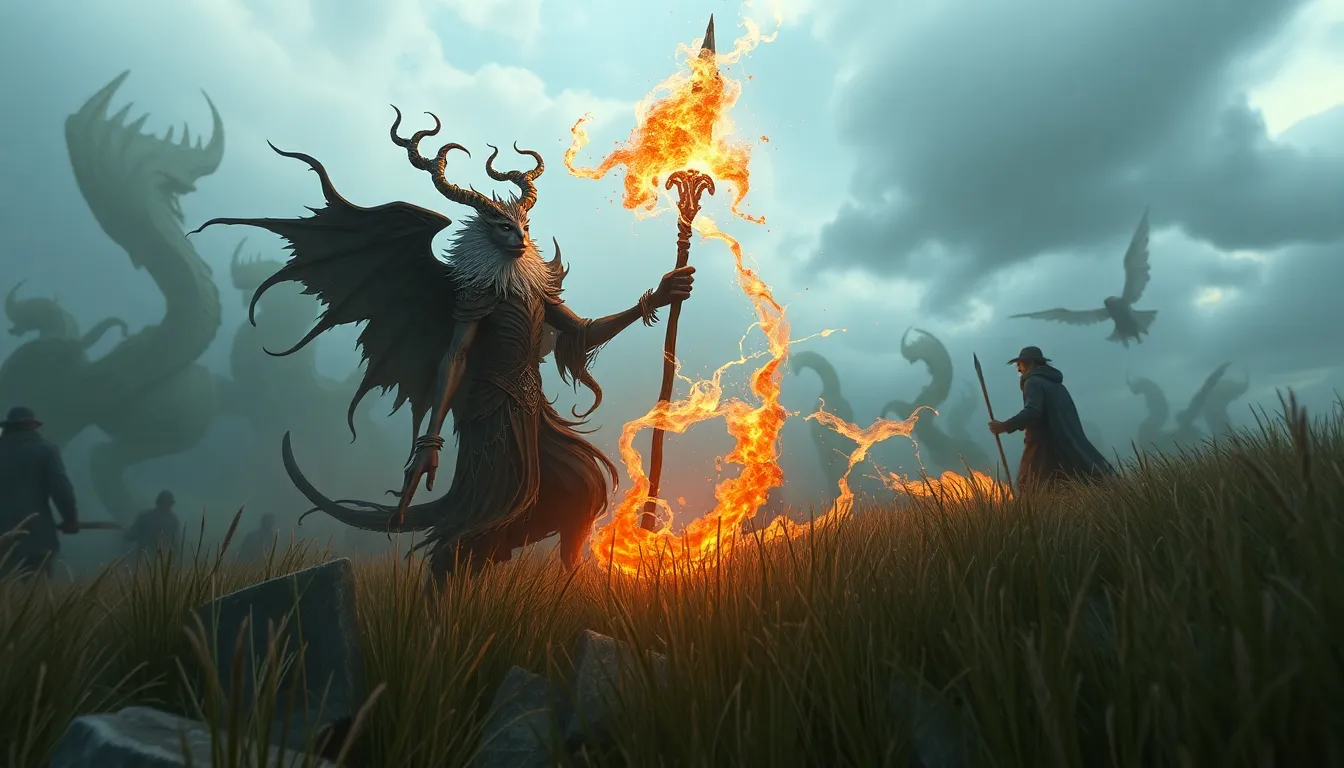Epic Encounters: Legendary Battles of Myth and Legend
I. Introduction
Epic encounters in myth and legend refer to the grand and often tumultuous battles between heroes, gods, and monsters that are central to various cultural narratives. These legendary battles serve not only as thrilling tales of conflict but also as reflections of the values and beliefs of the cultures from which they originate. Such stories often encapsulate the struggles between good and evil, the complexities of human nature, and the eternal quest for honor and glory.
The importance of legendary battles in cultural narratives cannot be overstated. They provide insight into how societies view heroism, morality, and the divine, while also serving as vehicles for teaching lessons and preserving history. This article will explore various mythological battles from different cultures, analyzing their significance and impact on both ancient and modern society.
The structure of this article will take the reader through various epic encounters, examining their origins, key figures, and their enduring legacies.
II. The Role of Mythology in Shaping Legendary Battles
Mythology plays a crucial role in shaping perceptions of heroism and valor. It illustrates how cultures define what it means to be a hero and the qualities that are celebrated. The heroes of these myths often embody traits such as bravery, honor, loyalty, and sacrifice.
The interplay between gods and mortals is another significant aspect of epic battles. In many myths, the outcomes of these legendary encounters are influenced by divine intervention or the favor of the gods, blurring the lines between fate and free will.
Some notable case studies include:
- Greek Mythology: The relationship between the gods and heroes, such as Athena’s guidance of Odysseus.
- Norse Mythology: Odin’s role in guiding warriors to Valhalla.
- Hindu Mythology: The avatars of Vishnu and their interventions in earthly affairs.
III. The Trojan War: A Clash of Titans
The Trojan War is one of the most famous legendary battles in Greek mythology, chronicled in works such as Homer’s Ilíad. This epic conflict was sparked by the abduction of Helen, the wife of Menelaus of Sparta, by Paris of Troy, leading to a decade-long siege of the city.
Key figures in this war include:
- Achilles: The greatest Greek warrior, known for his unmatched strength and swift rage.
- Hector: The noble Trojan prince, a symbol of honor and duty.
- Helen: The woman whose beauty sparked the legendary conflict, often viewed through the lens of both desire and tragedy.
The Trojan War had a profound impact on Greek culture and literature, influencing countless works of art, drama, and philosophy. It serves as a powerful narrative about love, betrayal, and the devastating consequences of pride and vengeance.
IV. Ragnarok: The Norse End Times
In Norse mythology, Ragnarok represents the cataclysmic events that lead to the death of many gods and the destruction of the world. This epic battle signifies the end of the current world and the beginning of a new one.
Key battles and characters involved include:
- Odin: The Allfather who leads the gods into battle.
- Thor: The thunder god, known for his strength and bravery, who faces the serpent Jörmungandr.
- Loki: The trickster god who plays a crucial role in the events leading to Ragnarok.
The symbolism of destruction and rebirth is central to the Norse beliefs surrounding Ragnarok, illustrating the cyclical nature of time and existence in their cosmology.
V. The Mahabharata: The Great War of the Kauravas and Pandavas
The Mahabharata is an ancient Indian epic that recounts the story of the Kauravas and the Pandavas, two factions of a royal family, and their climactic battle at Kurukshetra. This epic is not only a tale of war but also a profound exploration of ethics, duty, and righteousness.
The significance of the Kurukshetra War lies in its moral dilemmas, where characters face challenging choices that test their principles and loyalties. Key themes include:
- The conflict between dharma (duty) and adharma (unrighteousness).
- The complexities of human relationships and the impact of war on society.
- The philosophical discourses found in the Bhagavad Gita, a sacred text that emerges from this epic.
VI. The Battle of the Titans: Greek Mythology’s Cosmic Conflict
The Titanomachy is a significant event in Greek mythology, representing the battle between the Titans, led by Cronus, and the Olympian gods, led by Zeus. This cosmic conflict symbolizes the transition of power from the older generation to the new.
In the aftermath of the Titanomachy, the Olympian gods established their reign, marking a new era in Greek mythology. The themes of power and rebellion are prominent, as the Titans represent the old order resisting change, while the Olympians symbolize innovation and the new order.
VII. Legendary Battles in Asian Mythology
Epic battles are not confined to Western mythology; they are also prevalent in Asian cultures. The Ramayana features the battle against the demon king Ravana, highlighting themes of good versus evil, devotion, and righteousness.
In Chinese mythology, the Battle of Red Cliffs is a historical conflict that has been romanticized in literature, emphasizing strategy, loyalty, and the fight against tyranny.
Some notable examples of legendary battles in Asian mythology include:
- The Ramayana: The epic tale of Rama’s quest to rescue Sita and his battle against Ravana.
- The Battle of Red Cliffs: A pivotal event in the Three Kingdoms period, showcasing the clever strategies of warlords.
- Japanese Mythology: The legendary battles of deities such as Amaterasu and Susanoo, reflecting the cultural values of honor and bravery.
VIII. The Role of Women in Legendary Battles
Women in mythology often play powerful roles, challenging traditional gender norms and showcasing strength and leadership. Figures like Athena, Durga, and Joan of Arc represent the complexities of femininity intertwined with valor and power.
Examples of powerful female figures include:
- Athena: The Greek goddess of wisdom and war, known for her strategic prowess.
- Durga: The Hindu goddess who embodies strength and is revered for her battle against evil.
- Joan of Arc: A historical figure who became a symbol of courage and faith during the Hundred Years’ War.
These characters not only influence the outcomes of battles but also inspire future generations to challenge societal expectations.
IX. The Legacy of Epic Battles in Modern Culture
The influence of legendary battles extends beyond ancient myths and into modern culture. Their narratives have been adapted into literature, film, and video games, resonating with audiences across generations.
Modern reinterpretations include:
- Film adaptations of ancient epics like 300 and Troy.
- Video games that draw on mythological battles, such as God of War and Age of Mythology.
- Literature that revisits these themes, offering contemporary perspectives on ancient conflicts.
These stories continue to shape contemporary hero narratives, reflecting our enduring fascination with courage, conflict, and the struggle for justice.
X. Conclusion
In summary, legendary battles hold a significant place in human culture, serving as powerful narratives that explore themes of heroism, morality, and divine intervention. The enduring nature of these myths showcases their relevance in contemporary society, as they continue to inspire and challenge us.
As readers, we are invited to explore our own cultural myths and the epic encounters that define them. By understanding these stories, we can gain insight into our values, beliefs, and the timeless nature of the human experience.




